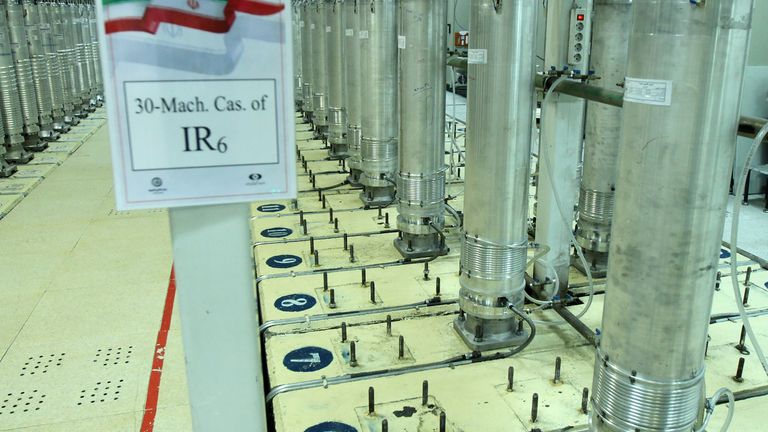
The UN nuclear watchdog’s board of governors has found that Iran is not complying with its nuclear obligations for the first time in 20 years.
It comes as sources have told US media that Israel is considering taking military action against Iran in the coming days – without American support.
Iran said it has “always adhered” to the safeguard obligations laid down by the International Atomic Energy Agency (IAEA).
Tehran said it “has no choice but to respond to this political resolution,” and said it would launch a new enrichment site “in a secure location”.
“Other measures are also being planned and will be announced subsequently,” Iran said.
The reports come as US President Donald Trump is said to be in advanced discussions with Iran about a diplomatic deal to curtail the Middle Eastern country’s nuclear programme.
However Mr Trump told the New York Post’s “Pod Force One” podcast that he was “getting more and more less confident about” an agreement.
Iran will not abandon what it views as its right to enrich uranium – contrary to US demands, a senior Iranian official said on Thursday.
Last week, Iran’s Supreme Leader Ayatollah Ali Khamenei said that abandoning such enrichment was “100%” against the country’s interests.
Israel and the US have long feared that Iran’s nuclear program aimed to develop a nuclear weapon, something Tehran has repeatedly denied.
The 2015 Iran deal signed by President Barack Obama sought to place limits on Iran’s uranium enrichment in exchange for the lifting of sanctions. However President Trump ultimately pulled America out of the agreement.
There has been a recent effort to strike a new deal as fears of Iran’s nuclear program persist in the volatile region.
Israel is said to have become more serious about a unilateral strike on Iran, particularly with reports that a deal between the US and Iran could include provisions about uranium enrichment. Israel views those provisions as unacceptable.
Such a strike would be a dramatic break with the Trump administration’s foreign policy.
With tensions in the region simmering as the nuclear discussions unfold and with the potential for unrest, the US State Department ordered the evacuation of all non-essential personnel from its embassy in the Iraqi capital, Baghdad.
America has also authorised – rather than ordered – the departure of non-essential personnel and family members from Bahrain and Kuwait
Dr Burcu Ozcelik, a Middle East expert at the RUSI thinktank, said there is a “growing sense that the window of opportunity for a US-Iran deal may be closing”.
She added: “The US may be prepping to deter Iranian retaliation in case of an Israeli strike – but unclear if it’s real strategy or leverage-building posturing to pressure Tehran into a ‘quick deal’.”














